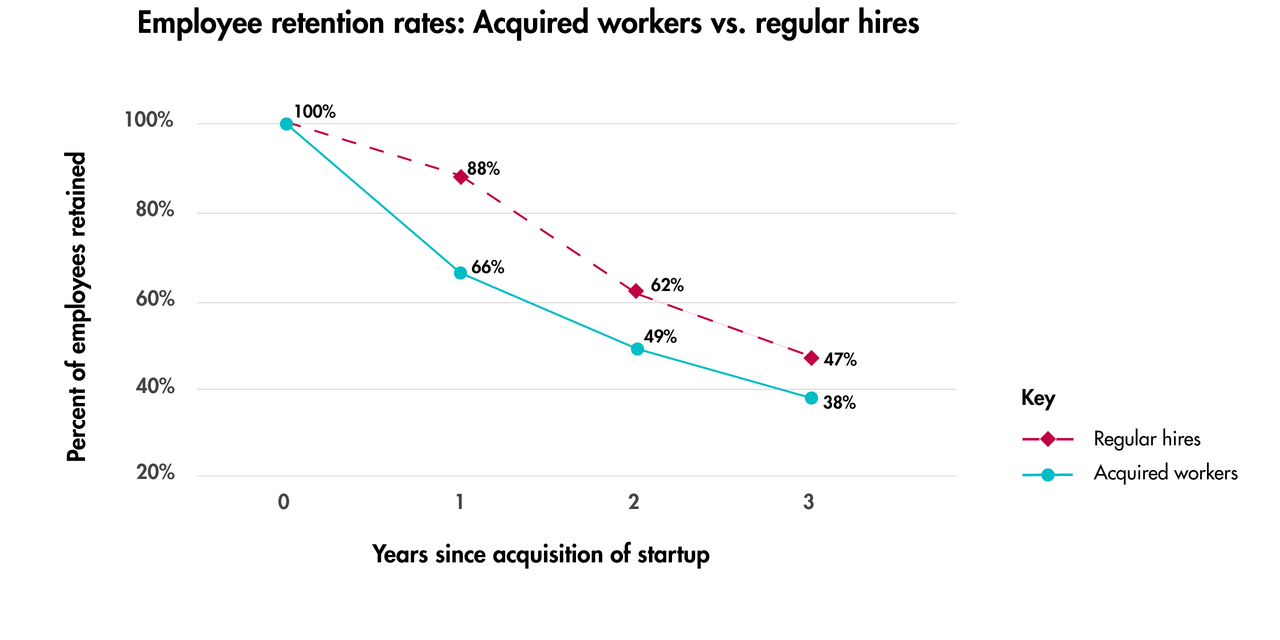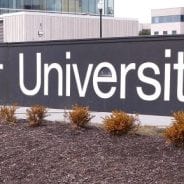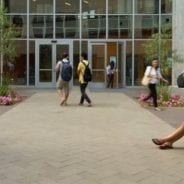Search results for :
Beyond the ‘Big Four’: What are the Other Major Consulting Firms You Should Know?
Deloitte, PwC, KPMG, and E&Y: Together these firms make up the “Big Four”—the four biggest professional services firms in the world. The companies offer auditing, assurance services, management consulting, corporate finance, legal services and more. It’s no surprise, that many of these companies are also ideal destinations for many MBAs. Continue reading…
3 Essential MBA Essay Question Tips
For many applicants, the MBA essay question is the single most terrifying and challenging part of the entire MBA application. More than your GMAT, GPA, or resume, the essay is extremely personal. The admissions committee uses it to get to know who you are, what you want, and how you’ll fit. And that’s a lot of pressure.
To succeed in your MBA essay, you have to know who you are well enough to paint a comprehensive picture that the admissions committee will keep reading until the last word. You want your story to be interesting, to answer the essay prompts, and to demonstrate “why you.”
And though every school has different MBA essay prompts, three essential elements are always vital. Continue reading…
5 Questions With Pasquale Quintero, MBA Director at the TCNJ School of Business
In our latest installment of the MetroMBA “5 Questions” series, we speak with Pasquale Quintero, MBA Director at the at the TCNJ School of Business. Quintero talks about the school’s new MBA program, the “T-Style” curriculum, and the best food you can get in Trenton, NJ.
Why do you believe TCNJ introduced its new MBA program?
“The College of New Jersey School of Business is delivering a contemporary, relevant, highly competitive MBA education that provides both near-term and long-term benefits to early career professionals. Employers want employees with strong skill sets in a specific area and a broad understanding of business on which they can build. Employees want to build successful and stable careers. Therefore, the School of Business determined students need immediate applicable specialized skills, hence the creation of the ‘T-Style’ curriculum.”
What can you expect for the first year of the program?
“The ‘T-Style’ offers students the ability to specialize in Data Analytics, Finance, or Strategy, Innovation and Leadership during their first year of study. In the second year, students will round out their education by taking courses designed to equip them with the tools to be effective managers. This approach provides the student with depth, breadth, and an early return on investment with a graduate certificate after their first year of study.”

“Third, the program is offered in a hybrid format (online and face-to-face), which will allow students to enroll in the MBA program without disrupting their personal and professional obligations,” Pasquale notes.
What are the differences between the TCNJ MBA and other business schools?
• “First, our unique ‘T-Style’ curriculum offers students the benefit of deep dive learning in a specialization in Data Analytics, Finance or Strategy, Innovation and Leadership during their first year of study. Students will gain enhanced skills to apply in their day-to-day decision-making.
• Second, the program will have a business practitioner associated with each course. The faculty will use the practitioner to help reinforce and expand upon the application of MBA concepts in practice.
• Third, the program is offered in a hybrid format (online and face-to-face), which will allow students to enroll in the MBA program without disrupting their personal and professional obligations.
• Students meet in class for eight hours on Saturdays, six times in the fall and spring, plus four times in the summer. When not meeting face-to-face, students will complete their coursework online. Winter courses will be offered 100 percent online.
• Finally, the program is price competitively.”
What is one major advantage TCNJ provides in the new program?
“The innovative ‘T-Style’ curriculum as it is taking a different approach to graduate management education. After just one year students can demonstrate real progress in a specialty area after just seven courses.”
Where can I get some good food in Trenton?
“On campus there are some great restaurants such as Mexican Mariachi, Piccolo Pronto, and Yummy Asian Cuisine. I’ve heard good things about Cafe ’72 near campus, and there are plenty of great restaurants to choose from in downtown Princeton.”
McMaster University Receives $15 Mil. Donation, and More – Toronto News
Toronto’s business schools have had an active week, filled with exciting new developments. Below, we’ve laid out some of the highlights.
McMcaster University Receives $15 Million Donation For Its Commerce Program – The Globe and Mail
Paul McLean and his family have contributed $15 million CAD to McMaster University’s DeGroote School of Business. Private donations will go toward revamping the school’s undergraduate commerce program. McLean’s gift will be added to the $50 million undergraduate business education building—scheduled to open in 2022.
McLean, who earned his undergraduate degree and MBA at McMaster, is the Chief Executive Officer of CWB Maxium Financial. He feels passionate that this donation will lead to a valuable and “potentially revolutionary” learning experience for those involved.
Len Waverman, Dean of the DeGroote School of Business, says:
“When you think about the way the world is changing, it is beyond hype; and with artificial intelligence, it does change the nature of work and the nature of the occupations students go into…everyone has similar ideas that our students have got to be creative, think outside of the box and be able to transform themselves.”
You can learn more about the donation here.
Doug Ford’s Fix for Toronto’s Housing Crisis is Easy: Just Build More Homes – Financial Post
The Financial Post recently highlighted the push from Doug Ford, the Ontario Premier, to build more homes in Toronto as a solution to housing shortages.
Toronto’s housing prices have doubled in the past decade, and experts are debating the best solution to re-mediate. Demand measures are controversial, as they disproportionately affect younger buyers and buyers in lower socioeconomic brackets. Ford argues that supply measures would grow the markets in a stable and maintainable way.

Just in the past five years, housing costs in Toronto have risen 60 percent, according to The Financial Post.
The Financial Post spoke with Michael Fenn, a visiting fellow at the Lawrence National Centre at Western University Canada’s Ivey Business School, on the rising costs. According to Fenn, “Keeping housing of a variety of types affordable and available is crucial to the economic success of the GTA and the country generally.”
You can read more about the Toronto housing crisis here.
30 Exceptional Educators Recognized As Canada’s Outstanding Principals – The Learning Partnership
Recipients of Canada’s Outstanding Principal Award were recently announced, and will be honored at a ceremony at the University of Toronto’s Rotman School of Management on February 26, 2019.
Additionally, the honorees have the opportunity to attend a leadership training program at Rotman, wherein they will learn about management practices from experts in various fields. This year marks the 15th anniversary of The Learning Partnership’s Outstanding Principal Award.
Debra D. Kerby, President and CEO of The Learning Partnership, says:
“From Rankin Inlet, NU to Vancouver, BC to Richmond PEI, we are honored to recognize principals from coast to coast to coast. Principals are so important to the success of our schools and our students. They ensure our schools are dynamic, engaging places to learn, and that student are inspired every single day. These principals are enabling students to thrive in an increasingly diverse and changing world. These 30 principals are all instrumental in connecting students, educators, families and the community together, and we recognize their indispensable contributions to helping Canada continue as a global leader in education.”
The recipients were nominated by parents, faculty, and members of their community. They will join the National Academy of Canada’s Outstanding Principals, which will afford them, “… networking, mentoring and professional development opportunities to enhance their leadership skills.”
You can learn more about the awards here.
No Work Experience? Check Out These Canadian MBA Programs
The question of what differentiates you from the pack during the MBA application process is a daunting one. How will your stellar GPA, along with a miles-long list of extracurriculars, volunteer work, and other experiences stand out? Furthermore, what if you just haven’t had the time to earn years of professional experience?
Never fear, because many MBAs pursue their degrees without an extensive professional resume. Here is a look at some programs in Canada that do not require work experience.
Strong Hiring Numbers Highlight Banner Year for NYC School – New York News
Let’s explore some of the most interesting stories that have emerged from New York business schools this week.
Strong Hiring Proves Employers Crave Stevens’ Blend of Business, Technology Skills – Stevens Institute of Technology SOB Blog
The class of 2018 at the Stevens Institute of Technology’s School of Business recently posted a 98 percent placement rate, earning salaries of $72,480; far above NYC and national averages. The Stevens MBA focuses on how data and analytics are changing the way professionals work and how technology creates new opportunities while solving complex problems.
Associate Dean of Undergraduate Studies Dr. Ann Murphy notes, “We enjoy close relationships with managers in financial services, accounting, technology and media, which keeps us ahead of the rapid changes in industry. That real-world input influences our curricula, which helps our students get better internships and the jobs they want upon graduation.”
Seth Kirschner ’18, who majored in Business & Technology before accepting a position as a cyber risk advisory consultant with Deloitte, asserts, “The industry expertise of the faculty at Stevens comes through so clearly in the classroom. You’re learning from professors like Dr. Kevin Ryan, who have patents and years of experience in the telecom industry, or a turnaround strategist like Dr. Murad Mithani, who teaches you how to change a failing company. As a student at Stevens, you’re surrounded by excellence.
You can read more about the Stevens’ Class of 2018 here.
The Social Benefits of Candid Photos – NYU Stern School of Business News
New joint research from NYU Stern Professor Alixandra Barasch finds that candid photos elicit a more favorable response in certain social situations because they are seen as more authentic.
Barasch co-authored a new paper with Wharton’s Jonah Berger entitled “A Candid Advantage? The Social Benefits of Candid Photos,” which uses five experiments to determine how candid photos increase interest in observers in the realm of friendship and dating.

Barasch and Berger’s research finds that more candid, “real” photos are seen as favorable than staged ones, even in professional settings.
Barasch and Berger write, “People often assume that a curated, polished version of the self will generate the most favorable responses—that by smoothing rough edges and presenting one’s best side, others will like and want to interact with them more. But this assumption is not always correct.”
Barasch continues, “In some cases, viewers prefer an unvarnished picture because it seems more genuine. People value authenticity because it feels more accurate.”
You can read more about the research here.
Journalism Class Supports Lehigh’s West Coast Connections – Lehigh College of Business and Economics News
Launched in January 2017, the Lehigh@NasdaqCenter offers immersive learning experiences to six Fellows each year, offering a West Coast campus extension for Lehigh students based in Silicon Valley. This program is just one way in which Lehigh builds an academic bridge from Bethlehem to the innovation ecosystem of Silicon Valley.
Samantha Dewalt, managing director of the Lehigh@NasdaqCenter, describes the interdisciplinary program:
“The media fellows report on programs and events at the center, interview featured entrepreneurs and produce multi-media stories across a range of platforms about the risks and rewards of entrepreneurship. We work together to select projects the students are excited about and ones that will benefit both Lehigh and Nasdaq Center communities.”
Entrepreneur Craig Gordon, ’76, founder and Managing Director, Blueshift Research remarks, “I think this is a great example of Lehigh innovating in a course where there is nothing like it anywhere in the country. The enthusiasm was unbelievable. You want that at any experience you have at any university.”
You can read more about the Lehigh learning experiences here.
New Investment Banking Jobs for MBA Students and Grads
More than a decade removed from the Great Recession, finance remains a popular and lucrative career for MBAs. There are plenty of varied and well-playing opportunities available across the U.S., with the average graduate earning more than $140,000 according U.S. News & World Report at top firms. Those interested in putting their hat in the ring, here’s a look at some of the best new MBA jobs in investment banking. Continue reading…
UC Irvine Jumps in FT Ranking, USC Alum Takes on MetroLink, and More – Los Angeles News
Let’s dig into some of the biggest business school news emerging out of Los Angeles this weekend.
Merage Climbs in Financial Times Rankings – Newswise
UC Irvine’s Merage School of Business has climbed in the Financial Times rankings, to 24th among nationwide schools and to 8th among public school of business in the U.S.
Dean Eric Spangenberg says of the rise, “We have always been committed to serving our students, and that effort is being recognized… Students know that when they choose the Merage School they’re changing their trajectory, gaining the skills and experience they need, whether they’re competing for influential, high-paying leadership jobs or launching their own businesses.”
Merage’s faculty diversity is also helping the school earn some well-deserved praise. More than half of the business school’s faculty are women, making it the first in the world for this distinction. Additionally, the school has the 7th highest salary increase for alumni compared to pre-MBA earnings.
As for research capabilities, Merage placed 37th in the world and 29th in the United States.
See the Newswire press release for more on the UC Irvine ranking. You can also read more about the recently released ranking FT here.
USC Marshall Alum to Revolutionize Metrolink – USC Marshall News
A USC Marshall School of Business alum is tackling an enormous task—shifting car-centric Los Angelenos to using public transportation.
Stephanie Wiggins, (EMBA ’07) has been named CEO of Metrolink, LA’s commuter rail system. She recently says of her appointment, “I’ve been in transportation for 24 years, and I’ve always been engaged on some level with Metrolink issues. But to now be in the C-suite … it’s a humbling experience [and] an incredible privilege.”

Metrolink may be an integral part of the 2028 Olympic Games in Los Angeles.
Wiggins is not only the first African American to be named to this position in the agency, but also the first woman. She will be facing with the additional challenge of revamping an outdated and underutilized system, which will be more important than ever during the 2028 Olympic Games.
Having held high level positions at several of the agencies that comprise Metrolink, Wiggins is perfectly suited to lead the way as the system evolves. Born in Oakland, CA, Wiggins attended Whittier College for business administration. After taking a temp job with the transportation commission in Inland Empire, CA, her career began to flourish during the pursuit of her MBA.
One of Wiggins’ primary projects has been implementing the FasTrak program on two of the major freeways in LA – the 10 and the 110. She noted, “I had to leverage everything I learned at USC … Not only to turn that project around but to get it deployed and operational and marketed. Everything I learned at USC Marshall helped me in getting the FasTrak™ lanes up and running.”
For more on Stephanie Wiggins and her role with Metrolink, read here.
California Economy Finishes 2018 on a Strong Note – Graziadio News
David M. Smith, Ph.D., a leading economist at Pepperdine Graziadio, was quoted recently in the LA Times on the recently released employment statistics for California.
While the rate of unemployment is declining, it does not necessarily mean the job market is truly stable. While “jobs are available for those who are in need of employment … Increasingly employers, especially small and medium-sized businesses, are struggling to find workers. Employers are grumbling about not having enough help and new hires simply not showing up,” Smith says.
He was, however, generally optimistic about the future of the California market. With a 3.2 percent rise countrywide in wages, the landscape for the state of California looks a bit brighter as well. Though the data is not yet available, Smith says, “we can say confidently it will closely mirror the national numbers.”
Click here to read more from the LA Times article.
Online MBA
Penn State Online MBA Program Structure
The program begins with the five-day Orientation Residency in University Park, Pennsylvania, helping students meet face-to-face with faculty and classmates, attend workshops and career services opportunities, and network with alumni.
The entirety of the program consists of 48 credits, 39 of which are General Management courses, with nine concentration course work credits. The schedule of programs is flexible, allowing students to take classes during the week on their own time. Starting in spring 2020, Penn State Online MBA students will have the opportunity to take part in the Global Immersion trip alongside fellow Residential and Executive MBAs.
The program can be completed in as little as two years, or as long as eight years.
Curriculum
The 48-credit program, according to the school, is structured around three separate principles: “Integration, Collaboration, and Engagement.”
After completing the 39-credits worth of General Management courses, students are given multiple concentration options (dependent upon which of the General Management courses they elect to complete), including: accounting; business analytics; finance; and more.
Online MBA Rankings
• U.S. News & World Report: 6 (tie)
Class Profile
The average class size for the Smeal Online MBA program is 31, with 355 total students enrolled in the program. The average age of enrolled students is 33. About 66.8 percent of the entire Online MBA student body is male, with 33.2 percent female students, 21 percent U.S. minority students, and 4 percent international students.
These students earned an average GMAT score of 577.
Tuition, Scholarships, and Financial Aid
Tuition cost for the Penn State Online MBA at the Smeal College of Business is $1,185 per credit. Over 48 credits, the total comes to $56,880.
Applicants to the program are eligible for FAFSA and unemployed tuition assistance. In addition, military service members are eligible for certain benefits to help fund tuition payments, of which include: the GI Bill and grant-in-ai; ROTC aid; and Yellow Ribbon programs.
Admissions
For enrollment in the Penn State Online MBA program at the Smeal College of Business, applicants must submit the following:
• An online application
• GMAT/GRE Scores (Waiver option available for applicants with Ph.D., M.D., or D.O. degrees)
• Resume
• Transcripts
• Two references
• TOEFL or IELTS scores (for non-native English speaking international applicants)
• Visa materials (international applicants)
• A $65 application fee
In addition, applicants must submit one essay response. The one-page document includes six short-answer essay questions (50-100 words) on the following prompts:
– “What are your short-term and long-term career goals?”
– “What will you contribute to your classmates and the program? Why should we admit you?”
– “Tell us about your leadership style and provide a supporting example.”
– “Tell us about an unsuccessful team experience, the role you played in it, and what you learned.”
– “Give an example of a time in which you received professional constructive criticism. What was it, who did it come from, and how did you apply it going forward?”
– “Explain how you are prepared/preparing to succeed in a quantitatively rigorous graduate program.”
Application deadlines are as follows:
| Deadlines for Fall 2022 Intake | Submit Your Application By | Expect a Decision By |
|---|---|---|
| 1st Round | October 1 | December 1 |
| 2nd Round | December 1 | February 1 |
| 3rd Round | February 1 | April 1 |
| 4th Round | April 1 | June 1 |
Full-Time MBA
Penn State Full-Time MBA Program Structure
The Penn State University Smeal College of Business full-time MBA is a two year program, held exclusively at the State College campus in central Pennsylvania.
Prior to the official August start date, students in the program go through a series of preliminary career prep services and onboarding tasks, assisting the career streamline for future MBA graduates. Each year of the program consists of four different modules, with Year One being comprised mostly of core course work, and Year Two structured around electives.
Curriculum
The Year One curriculum of the Smeal MBA starts with a two-week orientation, a one week faculty-led Concentration Intensive, and the required “Communication Skills for Leaders” course. The first four modules largely consist of additional core courses, including: Business Statistics; Financial Accounting; Management, and more. In addition, first year students undertake the Global Immersion experience, which helps MBA candidates learn more global business experiences in countries like Chile, China, and South Africa
Year Two features the bulk of a student’s elective courses. The first fall semester of Year Two begins with one week negotiations practicum.
Full-Time MBA Rankings
• U.S. News & World Report: 41
• Bloomberg: 33
• Forbes: 34
• Financial Times: 47
• The Economist: 68
Class Profile
The Penn State University Smeal College of Business full-time MBA class of 2022 has 52 students enrolled.
These students are, on average, 37 percent female, 14 percent U.S. underrepresented minority, and 17 percent international. Students join the program with an average GMAT score of 639, a GPA of 3.43, and 4.6 years of previous professional work experience.
Career Statistics
The mean base salary of Smeal full-time MBA graduates is $114,723, with a mean signing bonus of $23,995. An estimated 90 percent of graduates earned job offers within three months of earning the degree, with 86 percent accepting those offers.
The majority of recent graduates were employed in the technology industry, at 32 percent. Consulting was the second-most prolific hiring industry of Smeal full-time MBA grads at 23 percent, followed by manufacturing at 16 percent.
Tuition, Scholarships, and Financial Aid
Pennsylvania residents pay $27,442 for one year of tuition in the Penn State full-time MBA program, with out-of-state students paying $43,800.
Additional fees and other expenses are as follows.
• Fees: $1,034
• Orientation Fees: $170
• Communications Course: $30
• Global Immersion: (Lounging and currency exchange rates subject to change) $2,250
• Health Insurance: (Only required for international students) $659.20 for MBA Fellows, $3,296 for Non-MBA Fellows
An estimated 20 percent of incoming MBA students receive some kind of scholarship assistance, which is rewarded to tuition costs ranging from $7,500 to $20,000. Those who apply by the February deadline are automatically considered for available merit-based scholarships.
The business school also offers numerous fellowship opportunities, including the Penn State Smeal MBA Fellows, Powerful Women Paving the Way Fellowship, the Maimuna Mijindadi Anyene Memorial Fellowship, and more.
U.S. armed service members do not have to pay the requisite application fee for enrollment in the Smeal full-time MBA program, and may be eligible for the U.S. Government Yellow Ribbon Program.
Penn State also partners with Teach for America and the Western NIS Enterprise Fund, which can help fund tuition costs.
Admissions
For enrollment in the Penn State full-time MBA program at the Smeal College of Business, applicants must submit the following:
• An online application
• GMAT/GRE Scores
• Resume
• Transcripts
• Two letters of recommendation
• A video application assessment
• TOEFL or IELTS scores (for non-native English speaking international applicants)
• Visa materials (international applicants)
• A $65 application fee
• Essay: “What are your short-term and long-term career goals? How does your past experience enable you to achieve these goals? How do you see your MBA experience fitting into this plan?” (600 word limit)
Application deadlines are as follows:
| Deadlines for Fall 2022 Intake | Submit Your Application By | Expect a Decision By |
|---|---|---|
| 1st Round | October 1 | December 1 |
| 2nd Round | December 1 | February 1 |
| 3rd Round | February 1 | April 1 |
| 4th Round | April 1 | June 1 |
5 Questions With Imran Kanga, Rotman’s MBA Director of Admissions
In our latest installment of the MetroMBA “5 Questions” series, we speak with Imran Kanga, Director of Recruitment & Admissions of the full-time MBA program at the Toronto Rotman School of Management. Kanga discusses what students should know before applying and the culture of the program.
What type of MBA student flourishes at Rotman?

Imran Kanga, Director of Recruitment & Admissions of the full-time MBA program.
“Students who flourish in the Rotman full-time MBA program are highly driven and motivated individuals who have demonstrated leadership potential and academic excellence in their prior work and education. Our students also demonstrate excellent communication and interpersonal skills and thrive in a team environment, which not only is a significant part of the program but also sets them up for success in the workplace after graduation.”
What should prospective students know about the Rotman MBA program before they apply/start?
“The Rotman MBA program is a big commitment, both in terms of time and money. I would encourage prospective students, before they apply or start the program, to thoroughly research the program, the university, the city, and the career opportunities that potentially await them. It is important for them to speak to faculty, alumni, our career coaches, current students, and also the admissions team to understand what the requirements are and what they can expect from the program.
The FT MBA program is extremely rigorous and demanding, but it is also a very rewarding experience, and students need to be prepared before starting the program.”
What makes Rotman stand out amidst other Canadian MBA programs?
“There are so many factors that distinguish the Rotman MBA from other Canadian programs. To focus on a few…
- Being part of Canada’s largest and top-ranked University, Rotman MBA students enjoy the benefits of not only all the resources that the business school offers but also the University of Toronto as a whole. This includes being part of an extended global alumni network and a strong brand that is globally recognized.
- Our location in the heart of the largest city in Canada gives our students unfettered access to the largest business network in the country.
- Rotman also has some unique labs such as the Creative Destruction Lab, which supports startups in technology and disruptive innovation to scale and also gives our students the opportunity to work with these companies. Our one of a kind Self-Development Lab uses advanced technology and analytics to help students improve their soft skills such as communication, negotiation and presentation skills.”
How would you describe the culture of Toronto Rotman?
“The culture at Rotman is very much student success driven. Faculty, staff, alumni, and various other stakeholders work closely with students throughout their MBA journey to ensure that they are set up for success both during and after the MBA program.
At Rotman, we are also extremely committed to diversity and inclusion. Our students are extremely diverse, coming from all over the world and have different education and work backgrounds, which fosters a culture of knowledge sharing, support, and collaboration.
Our Dean Tiff Macklem is focused on continuous improvement, innovation, thought leadership, and research excellence, which is also central to Rotman’s culture.”
Where is your favorite place to visit in Toronto? Why?
“As a foodie, my favorite area of Toronto is the downtown core, which has a wide variety of restaurants and cuisines from all over the world, owing to the city’s incredibly diverse population.”
Check Out Some New MBA Jobs at These Global Finance Firms
One of the most lucrative careers an MBA can pursue is in financial services. Newer MBA jobs in this field include risk management specialists, financial analysts and asset managers, as well as roles in related emerging sub-sectors like FinTech. For MBAs looking to break into this field, check out our list of five exciting new MBA jobs at these top financial services firms:
Continue reading…
UVA, Oxford, CEIBS Rise in All-New Financial Times 2019 Ranking
The latest Financial Times MBA ranking is officially out, with several international schools rising closer and closer to the top in 2019.
Rutgers Faculty Member Moving On Up – New York News
Let’s explore some of the most interesting stories that have emerged from New York business schools this week.
Rutgers Lends Expertise to Newark – Rutgers Business School News
When Newark’s Community Economic Development Corporation lost its chief executive, Mayor Ras Baraka enlisted Lyneir Richardson of the Rutgers Business School to take the reigns. The Rutgers professor the opportunity as an “act of service” and said that he would be thrilled to share his knowledge and ensure that the Newark CEDC continued its vital role in attracting businesses, guiding real estate development and helping to sustain small businesses across the city.
“I’m honored to be of service to the city at this moment of economic energy,” Richardson says. “My temporary role in the city “will bring new relevant examples to my teaching.”
Rutgers University-Newark Chancellor Nancy Cantor remarks:
“Rutgers is a committed stakeholder in the present and future of our great city—not just in Newark, but of Newark—and we are pleased to be able to assist during this critical transition.”
You can read more about Richardson’s role here.
Lessons from Mario Gabelli, Merger Master – Gabelli Connect
Mario Gabelli, Chairman and CEO of GAMCO Investors, Inc, is a legendary “arb” (better known as a risk arbitrageur). He has utilized the discipline of risk arbitrage to successfully invest in companies undergoing mergers, reorganizations and other corporate events. The Fordham University Gabelli School of Business stresses that there is no better discipline that will teach you everything you need to know about deal-making than arbitrage, noting that it teachers investors financial techniques applicable across the financial industry.
“Those things work on everything you do,” Gabelli says.
“It keeps you up-to-date on every financial technique that’s available.” For students, “this is a great business to be in because you learn a lot, it’s not complicated, and you can do it tonight.”
Kate Willing, writer of the recently-published “Merger Masters: Tales of Arbitrage,” asserts: “risk arbs must also have nerves of steel—the discipline to adhere to a strategy, a willingness to tolerate calculated risk, and an ability to make decisions under conditions of uncertainty.”
You can read more from the Gabelli Connect article here.
2018: Year in Review – Lehigh University
Alongside a myriad of learning experiences, research, and huge celebrations on campus, the Lehigh University College of Business and Economics wrapped up an exciting year. Five noteworthy moments in 2018 featured a one billion dollar fundraising campaign, a distinguished Lehigh alumni commencement speech, an outstanding successful wrestling season, discovery of a new geometric shape by a Lehigh professor, and a five-story residential facility.
Deloitte CEO and Lehigh alum Cathy Engelbert says to graduates: “Do what hasn’t been done,” and shared three life lessons at Lehigh’s 150th commencement.

Kicking off its $1 billion campaign, Lehigh announced a generous $20 million gift from Lehigh Board of Trustees Chair Kevin L. Clayton ’84 ’13P and Lisa A. Clayton ’13P.
A new geometric shape: “Team of researchers discover a new shape present in epithelial cells that minimizes energy and maximizes packing stability during tissue bending. The new research can lead to advancement in tissue engineering.”
You can read more about the year that was at Lehigh here.
Five Surprisingly Lucrative MBA Destinations
Even though the most common MBA careers are those in the areas of consulting, banking and finance, there are other options out there. In fact, you’d be surprised to learn which companies truly value hiring MBAs into high paying management positions, and the sectors those firms occupy. Whether its tech, media, or retail, here’s a breakout of five surprisingly lucrative MBA destinations. Continue reading…
Gig Jobs vs. Full-Time and Revenue Sharing – Boston News
Let’s explore some of the most interesting stories that have emerged from Boston business schools this week.
Should It Be a Gig or a Job? – Questrom School of Business News
New research from Boston University Questrom School of Business‘ Associate Professor Andrei Hagiu and National University of Singapore’s Julian Wright examines how firms classify an employee versus an independent contractor, and how this relates to revenue sharing.
Hagiu notes that this classification greatly depends on the amount of decision-making power that firms cede to workers—and that appropriate revenue sharing should follow suit.
“In many cases, the share of variable revenue that is retained by workers is a good proxy for whether they can be considered independent contractors or regular employees,” says Hagiu.
The research notes:
“Firms that wish to classify their workers as independent contractors and provide a higher share of transferable decisions to workers should be paying them at least half of variable revenues. Firms that pay less than half of variable revenues to a worker should likely employ the worker, but provide a lower share of transferable decisions to workers.”
You can find out more from the research here.
Your Acquired Hires are Leaving and Here’s Why – MIT Sloan Ideas That Matter
Large companies often acquire startups in order to eliminate competition, with the added benefit of gaining skilled and innovative workers. Unfortunately, new research from MIT Sloan doctoral candidate Daniel Kim shows that this “acqui-hiring” strategy is not as effective as some think.
According to Kim’s paper, “Predictable Exodus: Startup Acquisitions and Employee Departures,” within the first year of a company’s acquisition, 33 percent of acquired workers left, compared to 12 percent of regular hires.
While those percentages tend to level off over time, in the three-year window Kim studied, acquired workers were 15 percent more likely to leave than new hires. This exodus is largely due to an organizational mismatch and new hires’ lack of agency.

Employment retention data, courtesy of Meredith Somers at MIT Sloan.
“People who work at startups join a startup for a reason,” Kim says. “Primarily they want to be in a very entrepreneurial, scrappy organization. But once they get acquired by a big firm, that is in direct opposition with the preferences that they have.”
You can read more about Kim’s research here.
The Accidental Restaurateur – Carroll School of News
Joe Essa, BC Carroll Alum ‘79, told the Carroll School of Business Blog that it was “a bit of a fluke” that he ended up becoming a successful restaurateur and ultimately the President and CEO of Wolfgang Puck Worldwide, overseeing more than 50 eateries across the nation along with licensing Puck’s cookbooks, canned soup, and other consumer products.
In 1983, when tending to his ill father in Greensboro, Essa was approached by a real estate developer friend, who needed a restaurant to complete a shopping center project. Café Pasta, Greensboro’s first casual Italian restaurant, was born.
Essa refers to the curriculum he learned at Carroll to keep him on track: “I always drew upon my accounting training … I knew you had to end up with some money in the bank! So I was very disciplined in that regard from day one.”
Eventually Essa sold his share of Café Pasta and came to work with Wolfgang Puck in 1999. He spoke passionately about his eclectic role within the organization.
“It’s not just one kind of dining, it’s many different kinds of restaurants, different cuisine. And then looking into the leases, license agreements, and marketing and promotion for all those businesses. And the people you get to meet along the way are fascinating. You get up every day and it’s different, it’s exciting, and it’s humbling. I just count my blessings.”
Click here to find out more about Essa’s life and career.
5 Questions With UC Davis MBA Admissions Senior Director Andrea Shaw
In our latest installment of the MetroMBA “5 Questions” series, we speak with Andrea Shaw, Senior Director of Admissions at the UC Davis Graduate School of Management. Shaw discusses the tight-knit culture of the UC Davis MBA program, what students can expect, and what qualities define the program.
How does UC Davis help MBA applicants who don’t come from a traditional business or quantitative background?
“Students come to us from across industries, functions, and from around the world. We pride ourselves on being a tight-knit and collaborative community where conversations directly happen between faculty, staff, and students. Our curriculum also allows students to choose between many different career paths especially given the connections we have across other UC Davis schools.
For students coming from a non-business background or who are nervous about starting, we’re a school that really fits. Many schools have 600 students in a full-time program. We only have 50 students. That allows us to personalize the journey of each student.
Also, UC Davis doesn’t believe in just throwing our students into the program. We get to know our students and their needs—what they’re looking for, their strengths, weaknesses, etc. Part of that knowledge comes from our highly robust orientation where we spend almost a month before school starts to really engage with our students.

Andrea Shaw, Senior Director of UC Davis Graduate School of Management Admissions
During orientation, we spend a tremendous amount of time learning about our MBA class. There’s a significant career focus with discussion topics focused on networking, resume building, LinkedIn, etc. However, what the orientation is most known for is helping our students understand their emotional intelligence and develop their story through exercises and experiential learning.
Students have said in surveys that it’s the orientation that solidifies that they’ve made the right decision to come here. Those first few weeks are critical for setting them up for success.”
What type of culture defines UC Davis?
“The two words that continually come up from students, alumni, and faculty are “kind and compassionate.” We are driven toward success, but nice. It’s the idea of compassionate leadership, which research has shown to be necessary for true business growth. We even have an entire series that students can take to develop these skills, including awareness of themselves and others. Kindness and compassion are woven into every aspect of our culture, starting at the top with our dean.
Our culture is also defined by our location in a college town instead of a city. I love Davis as a city, community, and a place to go to college. It’s safe, comfortable, and all the energy revolves around the college.
We’re also really focused on what we do best as a university—biotechnology, sustainability, agriculture. Those sorts of segments and industries are very tied to our culture, university, and research. So, someone interested in Wall Street finance might not fit as well as someone interested in biotech.
Finally, because we’re a small community, you can really stand out. There are not a lot of politics to hold you back. You can get very involved, and there are fewer people vying for the same positions, so you can do as much as you want. This is highly beneficial for students who have a particular passion that they want to explore. For example, I know an MBA student who started a Women in Leadership organization because that was something she was passionate about, and it happened in a few conversations.”
Can you describe the qualities that UC Davis students possess?
“Other than the typical GMAT scores, GPA, and years of work experience, we look for applicants who know what they want to do with their MBA. Candidates should have a focus for the post-MBA career while also remaining open-minded about new opportunities. After all, an MBA is meant to be a transformative experience.
We also look for highly competent individuals who are professional in their verbal and written communications with us. We pride ourselves on being able to find jobs for all our students, so there’s a benchmark we look for—well-rounded students that have many different qualities. Going back to this idea of collaborative and kind, we look for candidates who are good team players and who see the value of working in groups because we have a lot of group work.
Finally, we look holistically at the class and how everyone will learn from each other. We look for a diverse class with students from a wide variety of backgrounds and industries. Everyone should be unique while still representing the essential qualities we love: kindness, compassion, and collaboration.”
If you could give one piece of advice to an MBA applicant interested in UC Davis, what would it be?
“Confidence! So much of what MBAs lack is confidence. The problem is that if you don’t think you can succeed, you won’t.
When you fill out your application and come in for your interview, we want confidence. Confidence is doing your research (knowing UC Davis), knowing who you are, and knowing your story. It’s also about being authentic. All of that leads to being confident in who you are and what you want. That will come across with us; it will come across anywhere.

“Confidence! So much of what MBAs lack is confidence. The problem is that if you don’t think you can succeed, you won’t,” Shaw says.
Remember, first impressions matter. That’s where that confidence helps too. If you come into a situation confidently, those first impressions are strong.”
What is your favorite San Francisco-focused business blog/website?
“I would say for applicants who are looking at schools in the Davis area, Metro-Edge.org is an excellent website. This is a website for young professionals in the Sacramento area. You’ll find events, gatherings, news, and more. It’s really focused on change and responsibility, and that’s great.
I also have to give a little plug to all of our social media accounts. Follow us on LinkedIn, Twitter, and Facebook for the latest news and insights. We also have MBA Showcase days coming up on January 26, February 9, and Feb 23.”
New Forté Foundation Study Reviews MBA Impact for Women and Minority Students
What’s the MBA impact for women and minority students? That’s the question that the Forté Foundation set out to answer in its most recent MBA study.
Key MBA Study Insights
After surveying 900 male and female MBA alumni who graduated between 2005 and 2017, it found mixed results. While an MBA might boost earning power and increase equality in the workplace for minorities, the same cannot be said for women, according to the study led by Michelle Wieser, Interim Dean of St. Catherine University’s School of Business.
Post-MBA Female Graduates

An MBA may not be helping gender pay gap differences, according to new data from the Forté Foundation.
- Post-MBA, the pay gap between men and women does not improve. Women still earn less. In fact, pre-MBA women earned 3 percent less than men, and post-MBA the deficit widened to 10 percent for their first job after an MBA and 28 percent for current compensation.
- Women report less job satisfaction post-MBA than their male counterparts. They don’t advance to the same level as men and have fewer direct reports.
- About 34 percent of men and 65 percent of women think there’s a gender pay gap.
- Around 40 percent of respondents, primarily women, admitted to experiencing the gender pay gap. Unfortunately, these self-same respondents stated that they did not take action while others admitted to leaving the company.
- The gender pay gap in the study was 28 percent, representing $58,994 in annual compensation.
“While some salary disparity can be explained by the job functions women choose, there is likely unconscious bias and other factors at play,” Elissa Sangster, CEO of the Forté Foundation says in a press release. “This is a wake-up call—companies need to take proactive steps to lessen the pay gap, or risk losing highly-skilled women employees.”
Post-MBA Minority Graduates

The return on investment (ROI) gap still persists for both male and female minority graduates, with female minority MBAs earning 70 percent less than non-minority counterparts.
- For minority men and women, the MBA narrows the pay gap in their first post-MBA job and beyond—going from 24 percent pre-MBA to 16 percent post-MBA and 12 percent currently. However, minority graduates still earn less than non-minority grads from pre-MBA to the present.
- Overall, minority MBA graduates have lower career satisfaction than non-minorities when it comes to current salary and career progression.
- The ROI of an MBA for minority women is 70 percent, and for minority men it’s 84 percent.
“It’s encouraging to see an MBA provides greater economic mobility for women and minorities and narrows the pay gap for minorities in their first job post MBA,” Sangster says, “but the whopping gender pay gap and income disparity for women and minorities needs to be addressed, and soon.”
Forté Foundation’s MBA Study Conclusion
Despite the gender and minority pay gap, the Forté Foundation MBA study still reveals a positive return on investment. There’s an over 63 percent salary bump or higher post-MBA for both minority and non-minority women. Though the salary boost for men post-MBA is higher at 75 percent.
This article has been edited and republished with permissions from its original source, Clear Admit.
















